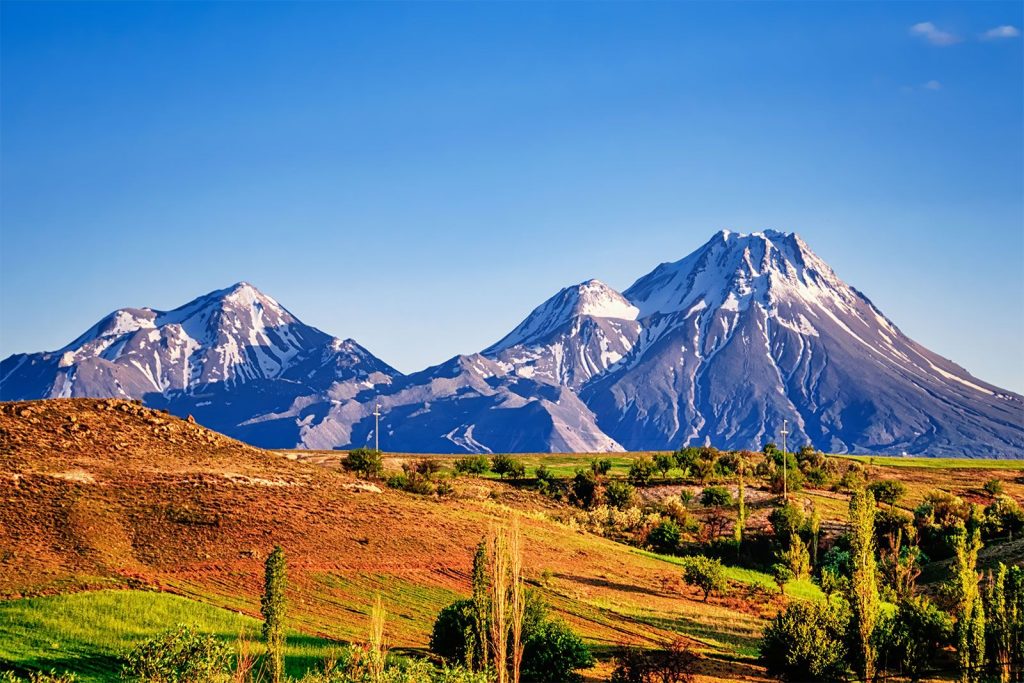As a story-telling device the parable has an awful lot going for it.
Parables are short, sweet, succinct. They contain relatable settings, relatable characters. They include both metaphor and analogy. By tying relatable settings, characters and metaphor together we can –
See ourselves, and others, in the story.
Apply what we’ve learned to real life.
Parables often draw from our assumptions about how the world should be.
For example –
Good guys should always win.
Bad guys should always lose.
Rules should always be followed.
Rule breaking should always be punished.
Parables challenge those default views.
They ask us to –
take a closer look,
reevaluate assumptions,
They ask us to reconsider –
How we view others.
How we view ourselves.
Parables suggest the world is infinitely more complex than any basic binary can contain. Ultimately parables ask us to live into this world in broader, God-honoring ways.
Last but not least parables contain the element of surprise.
For when you –
recognize yourself,
recognize others,
recognize the plot line –
And then, boom, something happens you didn’t see coming, it can’t help but surprise.
Of the 39 parables in the New Testament, today’s text, of the prodigal son, is perhaps the best-known of all. The context where the story is told is familiar. Jesus has been accused, again, by the Pharisees of welcoming sinners and eating with them.
There were rules for this sort of thing, the Pharisees reminded Jesus.
Rules for –
who is clean,
who is unclean.
Rules for –
People you should associate with,
People you should not.
Eating with others is one of the most intimate acts we do in community. You best be choosy when you pick those people, the Pharisees told Jesus.
You sir, they scolded him, were not picking people well.
Jesus responds to the critique, as he often does, with a story. It is a tale that brings into question so much we thought we knew.
The parable is filled with more twists and turns than a snake with an itch. Almost every sentence of the short story serves up surprise.
The tale has three central characters: one father, two sons.
Mine
Upon realizing he wasn’t overly inclined to be a farmer, the younger son asks for his inheritance from Dad. But he didn’t want it later. He wanted it now. Now. While dear old Dad was still very much alive.
I can’t help but be reminded of two recent conversations with my two children. Over the course of a couple of days, they both separately asked me this: Dad, when you die, who gets the video games? I started to get a little paranoid. And wondered if they were planning my demise.
You can split up the games later, and figure that out between yourselves, I told them. And really kids, it’s all yours anyways. You can play the video games pretty much any time you want. Just make sure school and chore to-do’s are done first 😊.
Instead of taking a wait your turn approach, like I did, this father responds directly. And he actually agrees to give the inheritance while alive! Who would do such a thing? The father’s actions are downright shocking. You can imagine Dad selling off some land, divvying up family heirlooms, counting coins. All those inheritance particulars now complete he then hands it over to the younger son and sends him on his way.
Imagine, too, the disruption this must have caused. There was now less family wealth, less land. The parents had lost a son earlier than they had planned. There was one less person to run the family business, one less seat at the table. The older brother had lost the only brother he ever had. The story is, at its core, a tale of a family broken in two.
Lost
If there is one plot line here that *isn’t* a surprise it is what happens next. The younger son, now footloose, fancy free, fully funded, and out on his own, decides to have some fun.
Scripture doesn’t provide many details here, tho it’s easy enough to imagine the friends, the parties, the high-risk investments that never panned out. When you are young, and wealthy, away from home for the first time, disconnected from the only friends, family and community you ever knew, odds are good some peril is a coming. We are told the younger son squandered it all in dissolute living, i.e. living without moral restraint. Perhaps it’s good the text here is somewhat vague.
And before you know it the young man is penniless, lost, in need of food. He finds employment feeding pigs, and soon realizes they were eating better than he. The young son reminisces of life back home. He remembers that even the hired help has all bread they can eat –
Kind of like Olive Garden.
Because when you’re here, you’re family.
Ames still needs one 😊 –
The younger son could go home, he thought, and work for Dad. To do that he would need to –
Swallow his pride,
confess he’d done wrong,
ask for forgiveness. And –
claim he’s not worthy,
to be called son,
begging instead to become
just a hired hand.
We might find ourselves surprised here too. For to do that would not be easy.
Found
In terms of fairness perhaps this would be a good end to the tale.
Son does wrong,
Dad forgives,
Natural consequences ensue.
At least, we may conclude, the young son will now have enough to eat.
But wait, there’s more. Upon approaching the homestead the father sees the younger son from a distance and is filled with compassion. He runs to greet the son, put his arms around him, kissed him. That’s about as good a welcome home greeting as a child can get.
The son begins his apology as planned. But the father will have none of it. Quickly, he calls out, bring him the best robe, put a ring on his finger, sandals on his feet. Even more let’s fire up the barbeque.
It’s time to eat!
It’s time to celebrate!
There was no scolding,
No I told you so,
No natural consequences.
Instead: a huge party.
For what was –
lost has been found,
dead is alive again.
All now was as it should be.
Jealousy
Perhaps too, this would have been a fitting ending, big happy party and all. But wait, this is still more. One of the main characters hasn’t yet chimed in.
The elder son had been working in the field when all this went down. When he neared the house he heard music, saw dancing, smelled dinner. Upon learning what was going on he was furious. He refused to join the party.
The elder son instead recited his resume to dad –
I have worked for you, as a slave does,
he began, sounding rather bitter.
And done so, dutifully, for years.
I followed your every command, dad.
And you’ve never done anything like this, for me.
Can you hear the jealousy, the accusations of unfairness?
Good guys should always win, the elder inferred.
And rules should always be followed, he assumed.
The elder son, to be sure, was all of that.
It may go unsaid, but let’s just name this. With the younger son now back, the elder likely worried about the financial impact this change would bring.
For now there was –
One more seat at the table,
One more mouth to be fed.
Perhaps dad would want to give even more to the younger son, once again.
Grace
The father, hearing these complaints, couldn’t help but feel sad for the elder son.
You are always with me, the father reminded him. All that is mine is also yours.
But your brother who was –
once dead, is now alive.
Once lost, is now found.
Bringing the family together, as one, is great cause to rejoice.
The father tried to help the elder son grasp what radical grace is all about. Countless generations of elder sons ever since are still trying to truly understand.
Now
Parables, as a style of storytelling, are a beautiful art.
We can see ourselves, and others, in story form.
And we can apply what we’ve learned to real life.
Reflecting on this text this week I can only conclude this: A good and loving God prioritizes the mending of broken relationship between God’s beloved more than all else.
More than family finances, more than fairness.
More than who follows the rules, who does not.
Reflecting on our current news cycle I can’t help but be reminded of people in Central America, Afghanistan, now the Ukraine, facing impossible circumstances.
Circumstances brought on by –
Wars over drugs,
Gang violence,
American wars,
Now wars incited by a madman.
Because of these wars countless people now find themselves lost. Countless people need hope. And, unlike the prodigal son, the nature of the circumstances they find themselves in are no fault of their own.
Which leads to this question: if God can welcome home someone as flawed and broken as the younger son, how much more can we show God’s grace to those in tough spots not of their making?
Why can’t we welcome these war-torn people home? Isn’t that what bringing God’s family back together is all about? You know, that thing God values more than anything else?
Perhaps we find ourselves playing the part of the eldest son.
We’ve been working the fields.
We’ve followed the rules every day.
And now we’re being asked to expand the family?
What if gas prices go up?
What if there aren’t enough jobs?
What about us, the eldest son asks?
The Father chimes in.
But your brother, and my child –
Who was once dead, is now alive.
Who was once lost, is now found.
We are to welcome them, the Father reminds.
We are to celebrate when they arrive.
They are the refugee, the immigrant, the asylum seeker. They are those who have no home of their own but ours. Dear Lord, show us the way. Amen.





